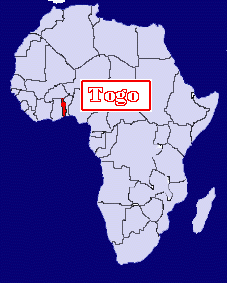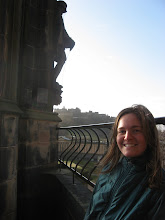Para los estudiantes de español en Central:
!Hola, cómo están, y espero que todos vayan muy bien! Yo sé que hay muchisimo frio en Wisconsin, y aquí, en Quito, la capital de Ecuador, también estamos en la estación de invierno. ?Qué significa invierno en Quito? Bueno, no hay nieve, tampoco hay tanto frio, pero hay mucha lluvia y baja la temperatura, hasta 50 degrados F. Este invierno está bastante duro; hace una semana que he visto el sol. Ojalá que haya sol pronto. Además, en la costa de Ecuador, hay tanta lluvia que hay muchas inundaciones, y mucha gente tuvo que salir de su casa.
Mi hermana, Krysta Koralesky, me dijo que Uds. están estudiando los adjetivos. Hay unas palabras que he aprendido aquí, y ahora, las uso con frecuencia. Aquí hay unos ejemplos:
chevere: ("chev-er-ay") really cool, awesome Se usa así "La fiesta estuvo chevere" The dance was awesome.
Cuy: Una palabra en Quichua (language of the Andes Mountains region) Cuy : Guinea Pig "CU-E" and "Key-chua"
Tanta gente usa "siga no más" en los buses, en los restaurantes, etc. Eso quiere decir "Seguirse adelante" aunque "no más" literalmente significa "aguanta, parar" En ingles, No more. No más.
Dale: Give it to me, go for it
Mi comida favorita: Ahorita, Chifles. ("chee-flays") (Como papas fritas, (chips) pero lo hacen de plátano verde, (green banana)
!Esas palabras se utilizan muchisimo! Finalmente, unas cosas interesantes sobre Quito:
1. HALLS (medicina para la garganta, "cough drops") se llaman "caramelos" que significa "dulces" Entonces, todo el mundo se come HALLS como dulces. HALLS cough drops are enjoyed here as candy.
2. Pollo es bien popular: Se ve KFC por todas partes, y restaurantes parecidos son populares. KFC is really popular, so is chicken.
3. Para tomar/coger el bus, depende de la distancia que se viaja, pero usualmente cuesta .25 centavos. (It usually costs 25 cents to take the bus)
4. La gente es muy amable, y te quiere ayudar. Cuando me perdí, le pregunté a una mujer como llegar a la estación de los buses, y ella me explicó en manera muy detallada, y me llamaba "mi hija" (People are very nice, and are willing to help you. I got lost one time, so when I asked a women for help, she told me how to get to the bus station, and called me "my daughter" which is like an endearing term.
5. Dichos así, "mi hija, mi amor, mi vida, mi corazón" se usa bastante también. (Frases like my daughter,my love, my life, my heart, are used a lot here, as endearing.
Cada día en Quito es diferente, y aprendo algo nuevo, si estoy en bus, si estoy haciendo compras, lo que sea. Es tan interesante ponerte en otra cultura, y yo espero que algun día, Uds. tengan la oportunidad tener una experencia así.
Every day in Quito is different, I learn something new, if I am on the busy, shopping, whatever. It is so interesting to put yourself in another culture, and I hope that one day, you all have the oportunity to have an experience like that.
In English:
Hey, how are you, I hope you're all doing well. I know it's super cold in Wisconsin and here, in Quito, the capital city of Ecuador we're also in the winter season. What is winter like in Quito? Well, there is no snow, or cold, but a lot of rain and the temperature falls, to about 50 degress Fahrenheit. This winter is pretty hard; it's been a week since I've seen the sun! I hope the sun shows up soon. Also, in the coastal part of Ecuador, there is so much rain that there has been floods, and many people had to leave their homes.
My sister, Krysta, told me that you guys are studying adjectives. There are some words I have learned here, and now use a lot. Here are some examples.
Every day in Quito is different, I learn something new, if I am on the busy, shopping, whatever. It is so interesting to put yourself in another culture, and I hope that one day, you all have the opportunity to have an experience like that.
I'm let you know when I update webshots (Soon!)
Friday, February 22, 2008
Subscribe to:
Post Comments (Atom)



No comments:
Post a Comment